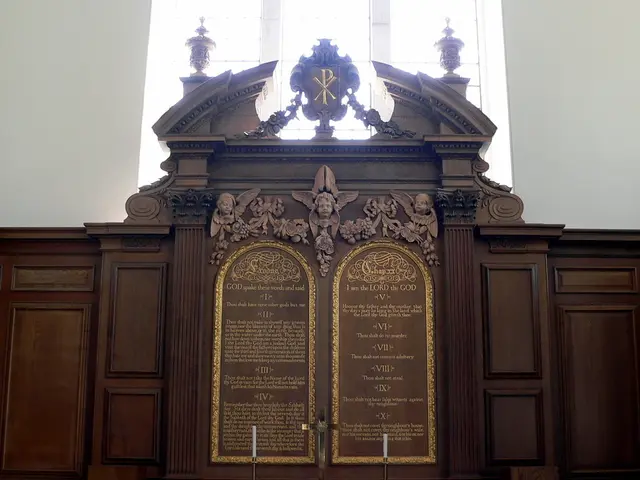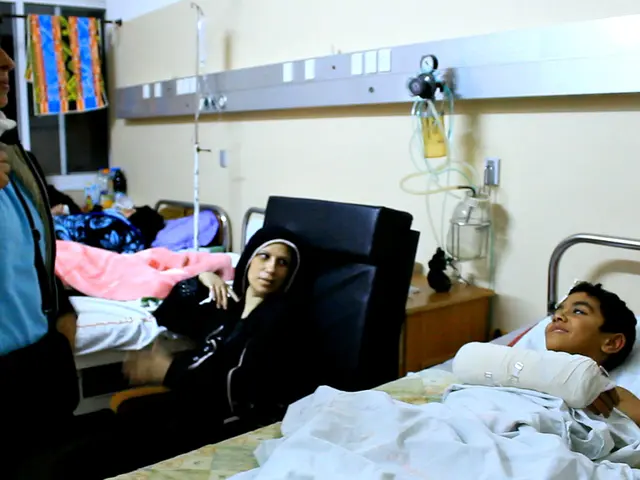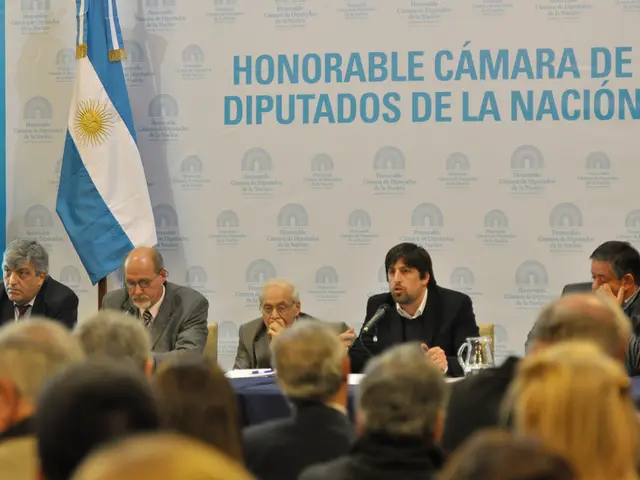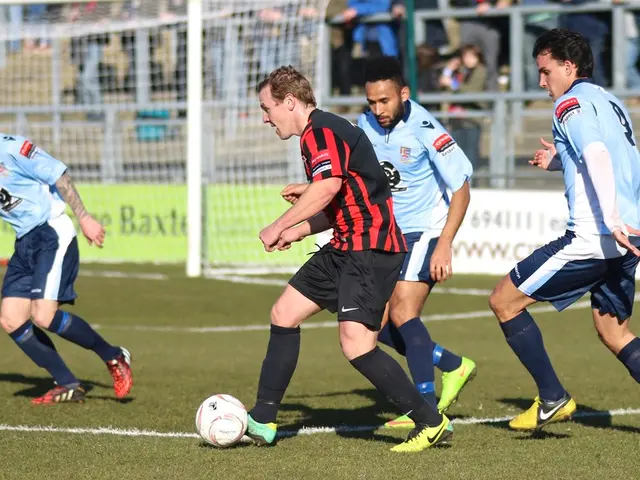Exploring the Việt Nam-US alliance: an examination of the historical connection and future possibilities.
On the occasion marking 30 years of diplomatic relations between Vietnam and the United States, Scott Nemeth, assistant director at the McCain Institute's Global Leadership Program, reflects on the crucial roles that the late Senator John McCain played in fostering reconciliation and shaping current bilateral ties.
Inevitably marked by division, the U.S.-Vietnam war in the 1960s and 1970s sparked intense disagreement, as many questioned the war's merit while grappling with domestic issues such as civil rights, the economy, and greater political concerns. It was, in essence, an immensely unpopular conflict.
Gaining the required political will proved to be a laborious process. Both Senator McCain and Senator John Kerry played significant roles in persuading the U.S. Congress and then-President Bill Clinton that normalizing relations with Vietnam was, indeed, in America's national interest.
The task was arduous, as many Americans - both politicians and citizens alike - wished to move past the Vietnam War, viewing the country as a painful and unpleasant memory. The revival of the issue in the 1990s, however, provided an opportunity to establish normalized relations once and for all, putting the Vietnam War to rest.
Resolving outstanding questions regarding prisoners of war and those missing in action (MIA) became a critical aspect of the normalization process. While some believed that MIAs were being held in Vietnam, both senators, alongside Senator Bob Kerrey, embarked on a mission to investigate the presence of American MIAs in Vietnam. Once they were able to assure the American public that this was not the case, President Clinton felt comfortable moving forward with the process of normalization.
Scott Nemeth (left), assistant director for the Global Leadership Programme at the McCain Institute. VNS Photo
Bipartisan consensus on Vietnam became possible due to the senators' shared military background and their commitment to working in the best interests of the United States. While Senator McCain continued to defend the war as a just cause, Senator Kerry was more focused on promoting peace. Despite their differing perspectives, they effectively worked within their respective parties to build consensus and support.
A few months ago, President Joe Biden lauded the enhancement of U.S.-Vietnam ties as one of the highlights of his career. General Secretary Tô Lâm of the Vietnamese Communist Party also stated that the bilateral relationship could serve as a model of post-conflict reconciliation for the rest of the world. Reflecting upon their sentiments, Nemeth acknowledges that the successful cooperation between two previous warring nations is indeed a rare and positive example for conflict-ridden regions. The USSR and Germany are two other instances where healing and partnership have arisen from past conflicts.
Nemeth emphasizes the United States' strong interest in maintaining a robust partnership with Vietnam, citing economic and security benefits in the Indo-Pacific region and beyond. With President Biden's visit to Vietnam a few years ago, the relationship stood out as a success story. Economically, the partnership has greatly benefited the U.S., leading to a surge in education, economic opportunities, and economic prosperity.
As the relationship continues to evolve, Nemeth notes the recent elevation of the partnership level, symbolizing the importance of the past 30 years. Both the U.S. and Vietnam stand to benefit mutually through cultural exchange, economic partnership, and security partnerships.
The McCain Institute is a Washington-based non-partisan think tank founded by Senator John McCain and family in 2012.
Its flagship programme, McCain Global Leaders, brings future leaders from many countries to Việt Nam every year to highlight the story of normalisation of peace and reconciliation, as well as McCain's legacy here in this country.
The Trump administration's tariff policy, potentially harmful to Vietnam's economy, had the potential to impact the trajectory of the bilateral relationship. Nemeth acknowledges the recent international challenges and the testing of alliances and partnerships. However, with the new U.S. administration, the future foreign policy remains unclear. Nevertheless, Nemeth anticipates the resolution of the relationship to a favorable outcome, as cooperation remains imperative and critical for U.S. interests in the region.
Nemeth clarifies the idea that the U.S. is becoming more isolationist by stating that the majority of experts and diplomats view Vietnam as a strong partner, with popular thinking in line with this perspective. While the U.S. may be stepping back from the global stage in its new foreign policy era, Nemeth expects the U.S. to remain engaged with Vietnam, as decreasing resources for demining and other post-war activities demonstrate a commitment to addressing the negative consequences of the war.
Undoubtedly, Senators John McCain and John Kerry played pivotal roles in fostering a bipartisan consensus that ultimately led to the normalization of U.S.-Vietnam relations. Their shared military experiences, focus on resolving the POW/MIA issue, and sponsorship of key legislative initiatives paved the way for a future characterized by healing, reconciliation, and cooperation.
The U.S.-Vietnam war in the 1960s and 1970s, marked by division, sparked intense disagreement and debate on various political, economic, and social issues.
Resolving the POW/MIA issue was a critical aspect of the normalization process, with senators, including McCain, Kerry, and Kerrey, investigating the presence of American MIAs in Vietnam.
The senators' shared military background and commitment to working in the best interests of the United States helped build a bipartisan consensus on normalizing relations with Vietnam.
Scott Nemeth, from the McCain Institute's Global Leadership Program, acknowledges the successful cooperation between the two warring nations as a rare and positive example for conflict-ridden regions.
Nemeth emphasizes the U.S.'s strong interest in maintaining a robust partnership with Vietnam, citing economic and security benefits in the Indo-Pacific region.
Despite international challenges and potential impacts on the trajectory of the bilateral relationship, Nemeth anticipates a favorable outcome as cooperation remains imperative and critical for U.S. interests in the region.
The McCain Institute, a Washington-based non-partisan think tank, brings future leaders from many countries to Vietnam every year to highlight the story of normalization of peace and reconciliation, as well as McCain's legacy in this country.








